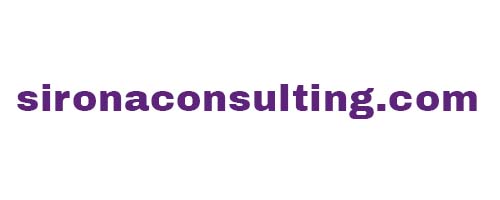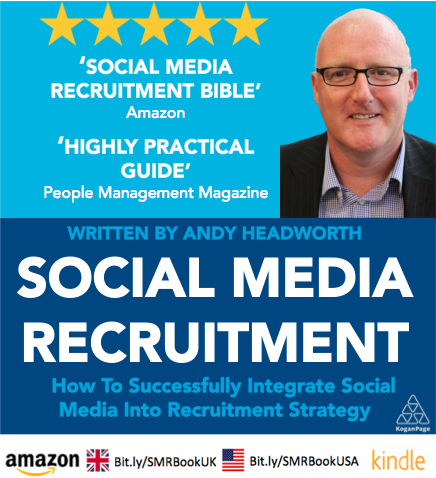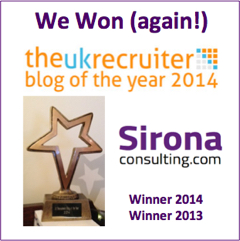What Recruitment Can Learn From Community Managers
How often do you venture into other industries to learn and benefit from their knowledge and experiences? If you don’t you should try it sometime, as you will be surprised how much you can gain from trying it.
I did this yesterday by paying to attend the FeverBee Sprint Europe Conference for Community Managers. The premise was simple - all the speakers and the audience were Community Managers, from many of the world’s biggest brands down to small niche communities. They came together to learn and share experiences. There were no vendor pitches, vendor stands or vaguely disguised promotional presentations - it was good quality content and debate. (It was actually refreshing to attend, after many years of recruitment conferences!)
So why did I want to attend a conference about community management?
The world of recruitment - and more importantly our target audiences, talent - is going through some significant changes. We are seeing workforce demographics change, employee loyalty decline, social media is now mainstream and our adoption of mobile devices is literally changing the way we all work. Recruiters cannot do things the way they always have (even though many still are), they are having to find, engage and develop a level of trust with future talent like never before. I strongly believe that the recruiters that are able to create and build niche communities of like minded people (in their industries), will have a better chance of success, in building sustainable talent pipelines for their companies.
[Please note, I am not referring to these as talent communities, as I think that has taken on a different connotation over the last couple of years.]
Many different online communities have build a level of trust and engagement that we could only dream of in our industry, so I wanted to see what the recruitment industry could learn about building better communities, from some of the best community builders out there. So here are just some of my insights from them.
Here are ten things recruitment could learn from community managers
While there were many learnings from the day for me, here are ten things that got my attention, as things we could focus on more within our recruitment industry.
- Every community is different is different in size, makeup and audience. This is something that recruiters do get hung up about - in fact they worry more about their competitors than they do about themselves! I think it has to do with the fear of them missing out on prospective candidates, that other companies have, and they don’t. How you formulate your community, what commonality they have, how many members there are and the affiliation they have to your company will be different every time. So will the content you share, the discussions that take place and cross-community engagement.
Just take a look at LinkedIn Groups of recruiters - on the surface there are many that seem similar, with common audiences, however the quality of content and level of interactions are vastly different. Focus on making yours the best it can be, and let your competitors worry about you, instead of the other way around. - You have to build communities for the success of your business. This doesn’t mean just creating and building a database of applicants and prospective talent for the future, which is the industry norm. To ensure the success (and survival in some cases) of your company, you need to have an engaged community of people that know about you and your company. In simple terms you need to earn their trust, and continue to demonstrate that over time. This applies equally to both internal (employees) and external communities.
We all know that many different skills are getting harder and harder to find and recruit for. People with these skills have choices of employers and just having a bigger cheque book or a well known brand, is not necessarily going to work for attracting and recruiting them. You need to work hard to initiate, engage and sustain the relationships with these people. The better you do this then the more chance you have for developing an effective and engaged pipeline of talent for the future, for your company. Communities allow you to do this. Warning: it is not an easy task, and requires hard work! - Managing small communities is much harder than large communities. This won’t come as any surprise to any of you that have tried to get an online community off the ground! When you consider point 5 below, you will begin to understand why much of the work in the early days of building a community is down to you - from stimulating conversation, sharing content regularly and encouraging people to comment and participate by sharing their own content. The more people that are in your community then the more of the small numbers of contributors you will have to help drive the community forward.
- If your audience knows who you, your community stands a better chance of success. If you and your company are already known to your prospective community members (i.e. people you have invited), either because they are website visitors, blog subscribers, newsletter subscribers etc, then you will improve the chances of success. The reason is straight forward - if they don’t know you, then you will have to invest a lot of time and energy building brand awareness first before they could be interested to join your community in the first place.
- 90% of your community won’t actively participate - but don’t worry, that’s normal. While I was aware of the low engagement numbers in communities from helping to run them myself, it was good to see the official description of this yesterday. It is known as the 99-1 rule within the community managers: 90% of members of a community will just watch, 9% will participate every so often and just 1% will participate frequently. Holy Moly! Now you can see why you need to make sure you focus on the numbers (no.3 above) and quality of your community to ensure it isn’t just you talking to yourself all the time!
- Social media management is not community management - or is it? Community managers engage, organise, protect (moderate), communicate and drive a community. Isn’t that what social media managers do with their followings on platforms like LinkedIn, Facebook, Twitter and Google+ etc? Well, listening to many community managers speak about this yesterday, it is evident this is a huge grey area. From a recruitment perspective I would say that most recruiters would be using social media to grow and develop industry targeted followings on their platforms of choice. So, forgetting that it might upset the community management purists for the moment, I think a well managed, engaged and content focused social media platform can absolutely be a community for recruiters.
It was interesting to hear that Google+ was given a huge thumbs up my a good number of people yesterday, as a good platform to use for driving a social media community. Of course I completely agree with that! - Competitions don’t work as a way to gain new members. This doesn’t actually need much explanation, other than Joe Cothrel, the Chief Community Officer from Lithium (the leading community platform vendor) has huge amounts of data to be able to make this statement! The best ways of promoting your community, according to Joe, are via your website, email and social media.
- Google likes (public) community content. This shouldn’t be a surprise should it? After all Google loves great content full of relevant keywords, synonyms and long tail keywords. So how do you make sure you can maximise this benefit with Google then?
Start with making sure you know the language that your community/industry uses, and include it in the content you create. Google is clever, so it will know when you use synonyms in your content, and it will associate it to similar ‘searched for’ phrases, which makes it an excellent method for creating organic SEO. A superb tip that Jennifer Lopez (Moz) shared was to look at your website analytics for the search terms that people use to find content on your website. Many times it is actually a question. If you have a common term being used, write a page for the website answering that question, ensuring the phrase, keywords and synonyms are in the response. A great way to naturally boost your SEO.
For example, one of the questions that drives traffic to my site is “were unicorns real?” !! Not sure my old blog post titled, How social recruiting can help you recruit the ‘unicorn’ talent answers that though 🙂 - Set achievable goals in terms of growth and activity. This may sound obvious, but too many goals are set to please management layers above, rather than realist growth targets. This applies to all ‘communities’ whether they be internal, external or social. They don’t grow as fast as we would like. As Cate Kobe (FeverBee) said, ‘under promise and over deliver on your communities reporting. Think short-term - such as three months - as much can change, even in that time.’
- Are community entrepreneurs the future of recruiters? The final session of the day was from Matt Doris, Head of Community at Etsy. He talked about the success of Etsy being down to it’s people, and their Etsy Teams. He defined these successful team players as being the new breed of entrepreneurs, with four primary skills: Creative, Flexible, Multi-channel and Social, who find like-minded people and work together.
It is interesting that he used these descriptions - because in my opinion, they represent the skills that recruiters now need in today’s ever-changing and talent short world!
What was interesting yesterday was the one question that EVERY community manager I spoke to and heard from, wanted to find an answer for - ‘how can we higher levels of engagement our community?’
One particular example that I liked yesterday for getting a community engaged came from Tanja Knorr-Sobiech, the Chief Corporate Community Officer for Bosch. They have 20,000 communities across Bosch worldwide, and integrate these communities internally across all the worldwide employees. On the first year birthday (anniversary) of the start of the community, they had an ‘online selfie party’, where employees within the community from all over the world shared ‘selfies’ on their community page and company Wiki page. And it worked!
Thanks to Joe Cothrel (Lithium), Jennifer Lopez (Moz), Tanja Knorr-Sobeich (Bosch) Dan Spicer (Hootsuite), Blaise Grimes-Viort (eModeration), Cate Kobe (FeverBee) for providing some of the great content I saw yesterday and to Rich Millington (FeverBee) for putting on a great conference.
Remember, not long now until my new book gets published. You can still get a 25% discount off RRP for Social Media Recruitment – How To Successfully Integrate Social Media Into Your Recruitment Strategy by clicking here.



